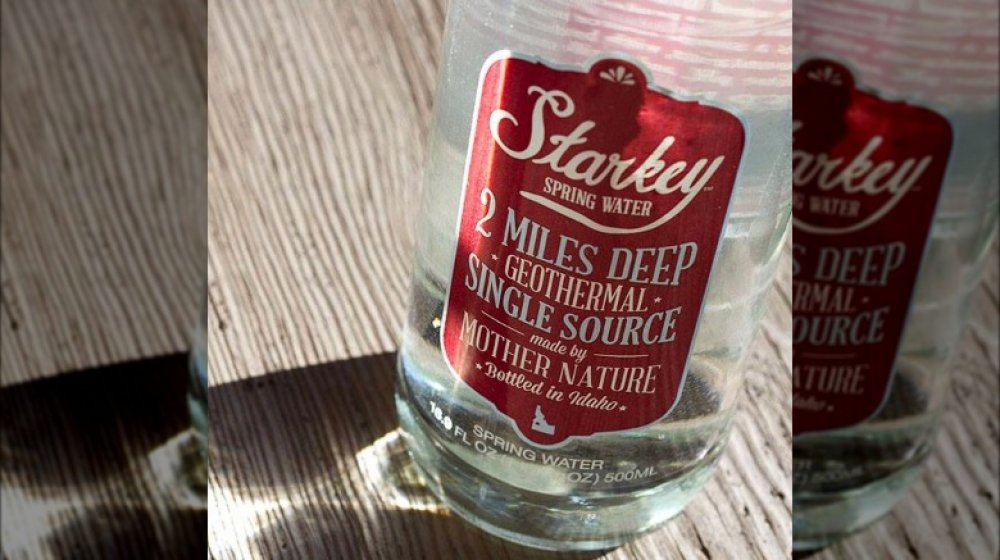You Shouldn't Buy This Bottled Water From Whole Foods. Here's Why
When we buy bottled water, we do so on the assumption that the stuff we pay for will be better than the liquid that comes out of our taps, but that doesn't seem to be the case with Whole Foods' Starkey Spring Water. With 9.49 to 9.56 parts per billion of arsenic, Starkey is still slightly below the federal limit of 10 parts per billion — but recent tests by Consumer Reports show that Starkey also contains at least three times more arsenic than any other brand tested. To make things worse, this isn't the first time Starkey has delivered disturbing results. Consumer Reports says it also tested Starkey last year, and their samples didn't only come close to, in one case, they actually exceeded the limit for arsenic.
"I think the average consumer would be stunned to learn that they're paying a lot of extra money for bottled water, thinking that it's significantly safer than tap, and unknowingly getting potentially dangerous levels of arsenic," Erik Olson, who works for the Natural Resources Defense Council, said.
Arsenic can also be found in tap water
If you've enjoyed a bottle of Starkey's before, you shouldn't be too worried because as Consumer Reports' chief scientific officer, James Dickerson says, one bottle won't harm you. "But regular consumption of even small amounts of the heavy metal over extended periods increases the risk of cardiovascular disease, certain cancers, and lower IQ scores in children, and poses other health issues as well," he says.
It isn't unusual to find arsenic in your drinking water, because it can occur naturally. The CDC says the mineral enters the water supply through deposits. It can also be found in water drawn from areas which have used (or overused) fertilizers in the past. But finding arsenic in bottled water may not sit well with consumers who expect more, because they've paid more. Plus, don't we all go to Whole Foods expecting top-quality products? For their part, Whole Foods said in a statement that their products "meet all FDA requirements and are fully compliant with FDA standards for heavy metals."
In the end, it seems that the best way to avoid ingesting arsenic is to invest in a good water treatment system that can remove the impurities, so you can carry water from home wherever you go.

